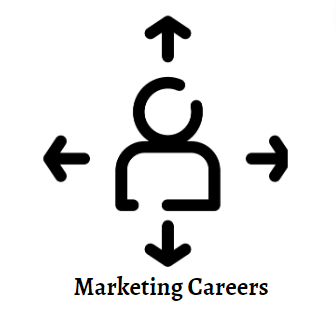
What analogies come to mind when you think of marketing? The experts will tell you it is a lot like wooing a partner. Think about it this way. Your job is to get people interested in your products and services. It is pretty much what you do when you want your potential partner to get to know you.
The strategy is to showcase the best possible attributes about you or the brand. And there is also the emphasis on being better than the competitors. The aim is to get people, or your potential partner if we go on with the comparison, to choose you over all others.
Statistics show that 48% of companies spend anywhere from 4 to 10% of their total revenue on marketing. That is quite a significant amount off the bottom line. But the willingness to pay shows the critical role of marketing.
If we delve a little further into the definition of marketing, you will realize it is quite broad. It includes anything you do to promote or sell products or services. And that includes advertising, research, events, public relations, and experiential marketing.
Further, no sector or industry does not need a marketing department. Look at healthcare, fashion, motor, and beauty industries, to name a few. They all need marketing to drive their brand visibility campaigns. So, it becomes easy to see that there are tons of marketing career opportunities.
And that forms the basis of this illuminating article. Read on to explore the diverse career paths in the marketing world. We will focus on senior, mid, and entry-level careers worth considering.
Senior Level Position in the Marketing Career: Creative Director
When you see advertisements or marketing visuals, a team of creatives is behind the work. These include copywriters, art directors, and designers. At the top or in the lead position is the creative director. The senior role is one that many aspire to reach. As you can imagine, it comes with many opportunities and excellent pay.
Role and Responsibilities of a Creative Director in Marketing
Getting to the top position comes with many responsibilities. The creative director takes on the role of leader, motivator, thinker, big brother, and more. We can summarize some of the roles as follows.
- A team leader who is in charge of all the creatives
- A manager who is in charge of all the visuals, aesthetics, and narratives for each project
- Provider of creative direction for all projects to ensure it meets client’s requirements
- Developer of style guides and strategies
- Budget manager for all projects
- A motivator who must ensure a conducive work environment that fosters creativity
- Liaison point with clients to pitch, communicate project progress, feedback, etc.
How to Become a Creative Director
Let us now explore how to become a creative director. As a senior position, you will need to climb up the ladder. And that will include dabbling in several creative roles. Creative directors manage a diverse team of creatives. So, they will have gathered experience in several disciplines within their career progression. These include copywriting, graphic design, video production, art directing, and more.
Other essential skills to have as a creative director include the following:-
- High levels of creativity and an eye for art. It would be hard to lead a team of creatives if you, well, don’t have any creative streak.
- Thirst for knowledge to always stay up to date with current trends
- Excellent communication skills. Remember, as a creative director, you’re a leader and motivator. You are also the liaison between client and agency. Thus, you must be able to speak well and articulate your ideas.
- As a senior position, industry experience is a must.
Do check out this list of some of 2022’s best creative directors. What stands out is that getting to the top takes work, perseverance, and an obvious love for the job.
Mid-Level Position in the Marketing Career: Marketing Manager
Marketing managers are in charge of marketing campaigns. If you refer to our introduction, their role is to woo customers. That means developing awareness-raising and demand-generating campaigns.
Roles and Responsibilities of a Marketing Manager
The marketing manager is in charge of several activities, including:
- Creating, executing, and evaluating marketing campaigns
- Budget management
- Ensuring collaboration with the creative and advertising department
- Contract preparations
- Review of advertising and marketing material
- Market research and trends analysis
- Managing the employees within the marketing department
How to Get Into the Marketing Manager Position
Many organizations need a marketing manager with a bachelor’s degree in marketing. You can also go into related fields like advertising and communication. A proven track record showing experience in marketing is also necessary. Beyond that, there are other skills you need to have, including:-
- Good communication skills
- Analytical and research skills
- Creative thinking
- Excellent interpersonal skills
- Project management and technical skills
- Leadership abilities
Entry-Level Positions in the Marketing Career: Public Relations Coordinator
Public relations is an exciting yet challenging part of marketing. Your work as a specialist is to maintain a positive image of the company. That requires working with various stakeholders to achieve your goals. These include the public, media, and internal stakeholders.
Roles and responsibilities of a public relations coordinator
Some of the tasks that fall in the public relations coordinator’s docket include:-
- Planning and execution of public relations campaigns
- Media liaison to get favorable coverage for the organization. That includes plenty of pitching newsworthy story angles. You may also have to write some of the editorial content.
- Preparing media kits, including press releases, background information, etc.
- Social media management to manage any negative mentions
- Help in writing speeches or public statements
- Training stakeholders on media relations and how to handle interviews
- Events support, including inviting guests, managing venues and vendors
- Crisis management to mitigate and manage any situations that can threaten the organization
How to Become a Public Relations Coordinator
You may need a bachelor’s degree in PR, marketing, or communications. But this varies depending on the organization. Sign up for several internships to increase your chances of landing the position.
Other essential skills to have include:-
- Excellent communication and writing skills
- A good grasp of social media platforms
- Curiosity and continuous search for knowledge. That will ensure you can generate and pitch newsworthy stories to the media
- High level of autonomy or independence in the execution of their duties
- Excellent organizational and project management skills
- Interpersonal and problem-solving abilities.
Advancement Opportunities in the Marketing Career Field
The marketing career has tons of advancement opportunities. Look at the creative director who might have come into the profession as a copywriter. But experience and dedication to work allowed them to move up the rungs. The most important thing is to have long-term marketing career goals.
The other important step is looking for or creating career advancement opportunities. Some practical yet effective tips include:-
- Keeping up with training or career-advancing education. These include getting advanced degrees or related certificates.
- Be bold and ask for new responsibilities or challenges. It will signal to management that you can take on more significant roles and are ready to learn.
- Network, volunteer, and look for mentors within your chosen field.
- Refrain from tethering yourself to one job. Moving to another organization may be the change you need.
- Diversify your marketing skills. Yes, you are a copywriter, but that does not stop you from learning graphic design. The same applies to an events manager who can also learn public relations. Expanding your portfolio and experience will increase your chances of getting jobs. The same will apply to promotions as you advance in your career.
Remember, there is no magic formula to being a success. It takes hard work, persistence, and determination. The hiring managers look for specific things, including:-
- Relevant skills or experience. Improving your knowledge base through training or continuous education is a plus.
- Enthusiasm/passion for the job and willingness to commit
- Independent thinkers, etc.
So, when going for that marketing job interview, prepare well. Learn all you can about the organization and show how you would be a good fit.
Marketing Career Challenges and Considerations
Let’s start by saying a marketing career is very satisfying. Transforming a brand into an industry giant from your initiatives feels great.
But there is the other side of the proverbial coin you need to know about. Marketing makes it to the list of one of the most stressful careers. Research shows that up to 71% of marketers say they experience feelings of burnout. Some of the stressors include:-
- Tight deadlines
- Work overload
- Huge demands for ROI from management
- Trying to convince people to buy products they don’t know
- Having to keep up with marketing trends as the field is very dynamic and ever-evolving
Have clarity on how well you can deal with stress. Teach yourself coping mechanisms as well. These include pacing yourself, taking a break, and learning relaxing activities. Also, be careful about immersing yourself too much in work. It should never be at the expense of social and family relationships. You know what all work and no play did to Jack right?
Final Thoughts
A marketing career will expose you to so many exciting opportunities. There is the chance to travel, meet new people, and experience many different things.
As we mentioned in the introduction, there are so many careers you can go into. If you have a creative streak, joining the advertising team is a dream job. And one day, you could be in charge of the whole team as a creative director.
Public relations is an excellent choice if you love to talk and write. But keep evolving. Improve your skill set so that you advance further up the career ladder. But remember, you must have a growth mindset, persistence, and a can-do attitude. Good luck with your marketing career choice.





